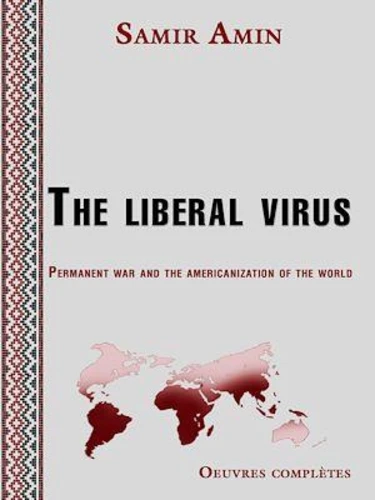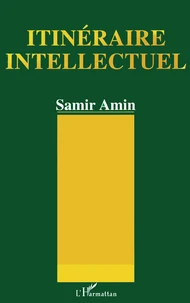The liberal virus. Permanent war and the americanization of the world
Par :Formats :
Disponible dans votre compte client Decitre ou Furet du Nord dès validation de votre commande. Le format ePub est :
- Compatible avec une lecture sur My Vivlio (smartphone, tablette, ordinateur)
- Compatible avec une lecture sur liseuses Vivlio
- Pour les liseuses autres que Vivlio, vous devez utiliser le logiciel Adobe Digital Edition. Non compatible avec la lecture sur les liseuses Kindle, Remarkable et Sony
 , qui est-ce ?
, qui est-ce ?Notre partenaire de plateforme de lecture numérique où vous retrouverez l'ensemble de vos ebooks gratuitement
Pour en savoir plus sur nos ebooks, consultez notre aide en ligne ici
- Nombre de pages195
- FormatePub
- ISBN978-2-37918-282-2
- EAN9782379182822
- Date de parution14/04/2020
- Protection num.Digital Watermarking
- Taille358 Ko
- Infos supplémentairesepub
- ÉditeurNENA
Résumé
TOWARDS THE END OF THE TWENTIETH CENTURY a sickness struck the world. Not everyone died, but all suffered from it. The virus which caused the epidemic was called the « liberal virus. » This virus made its appearance around the sixteenth century within the triangle described by Paris-London-Amsterdam. The symptoms that the disease then manifested appeared harmless. Men (whom the virus struck in preference to women) not only became accustomed to it and developed the necessary antibodies, but were able to benefit from the increased energy that it elicited.
But the virus traveled across the Atlantic and found a favorable place among those who, deprived of antibodies, spread it. As a result, the malady took on extreme forms. The virus reappeared in Europe towards the end of the twentieth century, returning from America where it had mutated. Now strengthened, it came to destroy a great number of the antibodies that the Europeans had developed over the course of the three preceding centuries.
It provoked an epidemic that would have been fatal to the human race if it had not been for the most robust of the inhabitants of the old countries who survived the epidemic and finally were able to eradicate the disease.
But the virus traveled across the Atlantic and found a favorable place among those who, deprived of antibodies, spread it. As a result, the malady took on extreme forms. The virus reappeared in Europe towards the end of the twentieth century, returning from America where it had mutated. Now strengthened, it came to destroy a great number of the antibodies that the Europeans had developed over the course of the three preceding centuries.
It provoked an epidemic that would have been fatal to the human race if it had not been for the most robust of the inhabitants of the old countries who survived the epidemic and finally were able to eradicate the disease.
TOWARDS THE END OF THE TWENTIETH CENTURY a sickness struck the world. Not everyone died, but all suffered from it. The virus which caused the epidemic was called the « liberal virus. » This virus made its appearance around the sixteenth century within the triangle described by Paris-London-Amsterdam. The symptoms that the disease then manifested appeared harmless. Men (whom the virus struck in preference to women) not only became accustomed to it and developed the necessary antibodies, but were able to benefit from the increased energy that it elicited.
But the virus traveled across the Atlantic and found a favorable place among those who, deprived of antibodies, spread it. As a result, the malady took on extreme forms. The virus reappeared in Europe towards the end of the twentieth century, returning from America where it had mutated. Now strengthened, it came to destroy a great number of the antibodies that the Europeans had developed over the course of the three preceding centuries.
It provoked an epidemic that would have been fatal to the human race if it had not been for the most robust of the inhabitants of the old countries who survived the epidemic and finally were able to eradicate the disease.
But the virus traveled across the Atlantic and found a favorable place among those who, deprived of antibodies, spread it. As a result, the malady took on extreme forms. The virus reappeared in Europe towards the end of the twentieth century, returning from America where it had mutated. Now strengthened, it came to destroy a great number of the antibodies that the Europeans had developed over the course of the three preceding centuries.
It provoked an epidemic that would have been fatal to the human race if it had not been for the most robust of the inhabitants of the old countries who survived the epidemic and finally were able to eradicate the disease.























